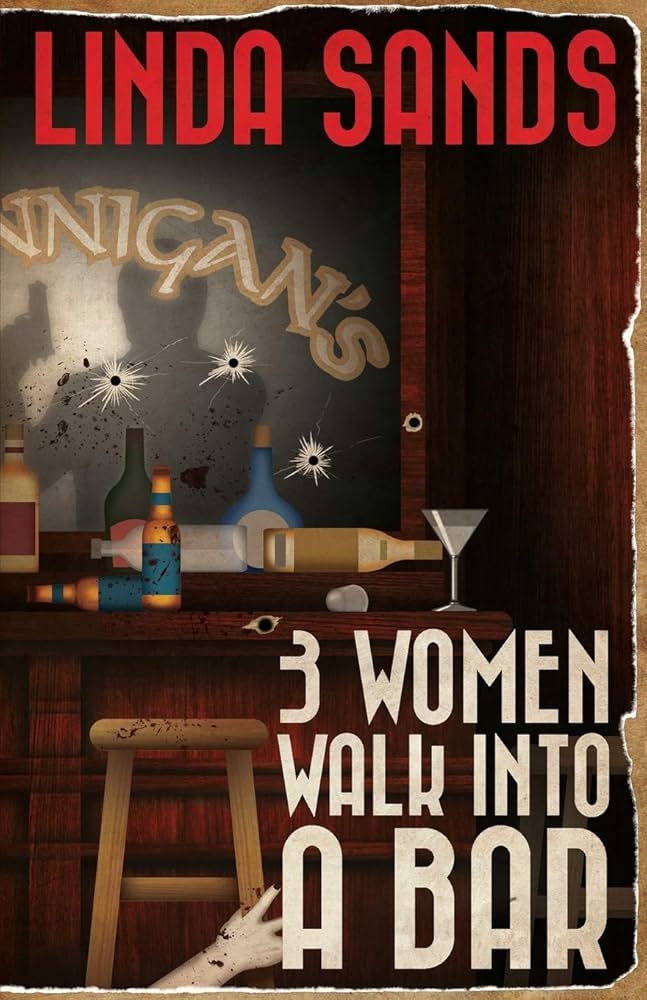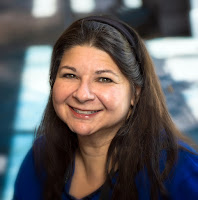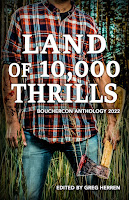 |
Hanging out at
Bouchercon San Diego.
|
I swore I would never edit an anthology of “crime fiction inspired by the songs of —.” That’s Josh Pachter’s lane. He’s created several excellent anthologies with this premise, and I’ve contributed to four of them: Joni Mitchell, Jimmy Buffet, Billy Joel, and the Beatles. Other editors have also ventured into this lane, and I’ve contributed to some of them, as well: an Alec Cizak anthology inspired by the songs of Waylon Jennings and a Sandra Murphy anthology inspired by songs of the 1960s. I’ve also been invited to two more inspired-by anthologies I’ll name later if my stories get accepted.
But last Wednesday (September 20), while driving home from an out-of-town dinner with Temple, I thought of Aerosmith’s song “Janie’s Got a Gun” and knew it would make a great anthology title. When I returned home, I did a quick search on Amazon and Google to see if anyone had done an anthology of crime fiction inspired by the songs of Aerosmith.
I couldn’t find any.
So, at 8:51 Wednesday night, I posted this on Facebook and X-Twitter:
Has anyone produced an anthology of crime fiction inspired by the songs of Aerosmith? “Janie's Got a Gun” would be a great title. You a publisher? Hit me up, maybe we can do this.
I expected a few people to say, yeah, that would be cool.
Instead, the post blew up on Facebook. By the time I shut down for bed at 10:22, I had a publisher and several potential contributors. When I awoke Thursday morning, I had more potential contributors than the anthology could possibly accommodate.
By Saturday morning, after swapping a handful of emails with the publisher—overall word count, number of stories, deadline for submission, potential release date, etc.—we had a handshake deal. I wrote contributor guidelines and sent the information to all the interested writers.
A few dropped out after seeing the guidelines and the due date for delivering stories to me, leaving sixteen writers to fill sixteen slots. By Sunday afternoon, every slot had been filled. About half the contributors are writers with whom I have previously worked, many of the rest are writers I am familiar with in one way or another, and a few are new to me.
Putting this project together ran contrary to my established process. I usually have a plan, and I stick to the plan. This came together unexpectedly and quickly, and it’ll be interesting to see how well the anthology turns out.
So, look for Janie’s Got a Gun: Crime Fiction Inspired by the Songs of Aerosmith on November 8, 2024, the anniversary of the song’s release.
BUT WAIT, THERE’S MORE!
Though I have written and edited nonfiction and have written fiction in multiple genres, writing and editing short crime fiction has become my
raison d’être.
For much of the last year, Temple and I have been exploring ways to give back to the community of short crime-fiction writers. We considered everything from scholarships to new-writer awards, and each time we ran up against potential barriers, among them: Who would manage these? Who would ensure the scholarships or awards were presented appropriately? And how does presenting something once a year to a single writer each time benefit the community as a whole?
We had no answers.
Then, Stacy Woodson entered the conversation. Temple could not attend the Edgar Awards with me this year, so Stacy became both my guest at Edgar-related events and my guide, getting me from New York to North Bethesda for Malice Domestic, and we spent a fair bit of time discussing what Temple and I were hoping to do.
The upshot from all our conversations was that one of the best ways to recognize and advance short crime fiction and its writers is by increasing publishing opportunities. What many writers want most is to be published. What many writers want second most is to be paid.
Over the following months, we brainstormed various ways to make this happen. Starting a magazine or a publishing company from scratch, while a beautiful dream, seemed impractical. I have years of experience on the editorial side, Stacy has experience with logistics, and Temple has organizational skills, but all of us lack experience in the business side of publishing.
As a small start to increasing opportunities for writers, Stacy and I developed two anthology concepts. I have edited or co-edited several projects for Down & Out, and I have co-edited one for Level Best (Murder, Neat: A SleuthSayers Anthology, coedited with Barb Goffman, due out in 2024). So, we pitched one anthology to each publisher, and both anthologies were greenlit.
Then came Bouchercon San Diego.
Remember the advice I gave earlier this month in “
Make Time for Meet-Ups”? Well, Stacy, Temple, and I met-up with many people during the convention, including Shawn Reilly Simmons of Level Best Books. Stacy spent much more time with Shawn then we did, and she organized a post-Bouchercon Zoom call where we discussed, among many other topics, how Stacy and I could work with Level Best to create more markets for short crime fiction.
The upshot? Stacy and I now have an agreement to produce several anthologies for Level Short, the new anthology imprint from Level Best Books. See the
press release for more details.
Giving back by creating opportunities—that’s one of the best ways to support the community.
The extra workload is also a reminder to be careful what you wish for. You might get it!
“Neighbor Boy” appears in Unnerving Magazine 18.
Queer Bait (Book 2 of the Men in Love and Lust series) was released by Deep Desires Press.
Prohibition Peepers: Private Eyes During the Noble Experiment was released yesterday by Down & Out Books. Contributors include Susanna Calkins, David Dean, Jim Doherty, John M. Floyd, Nils Gilbertson, Richard Helms, Hugh Lessig, Steve Liskow, Leigh Lundin, Adam Meyer, Penny Mickelbury, Joseph S. Walker, and Stacy Woodson.
 Two weeks ago I reported on my adventures at Bouchercon in beautiful San Diego. As usual I had my trusty notebook with me and was jotting down words of wisdom, and other words as well. Here are the results...
Two weeks ago I reported on my adventures at Bouchercon in beautiful San Diego. As usual I had my trusty notebook with me and was jotting down words of wisdom, and other words as well. Here are the results... "People like to talk to writers and they tell me things they wouldn't if they were sober." - Jeffrey Seger
"People like to talk to writers and they tell me things they wouldn't if they were sober." - Jeffrey Seger









.png)




















